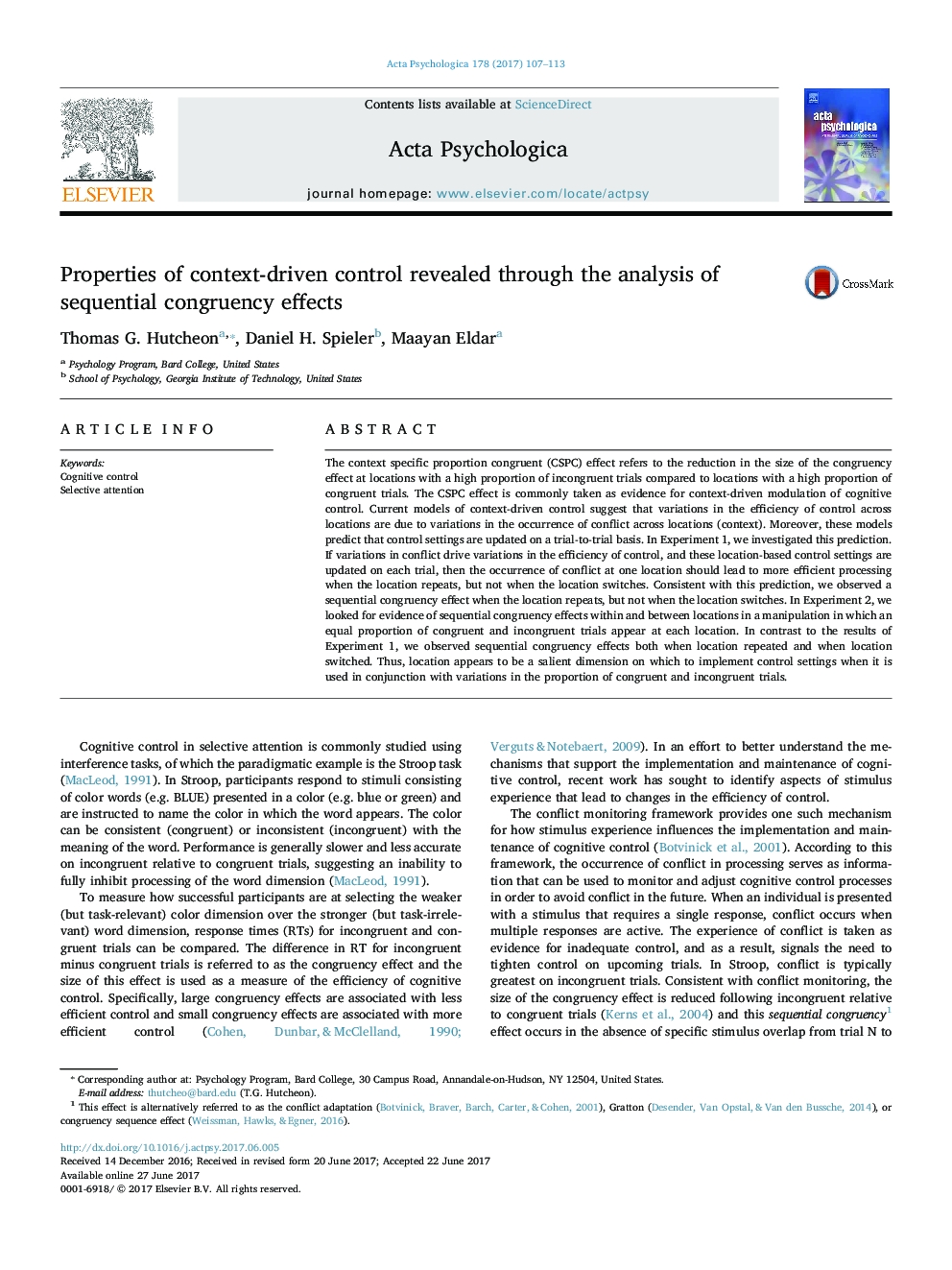| Article ID | Journal | Published Year | Pages | File Type |
|---|---|---|---|---|
| 5040302 | Acta Psychologica | 2017 | 7 Pages |
â¢The trial-to-trial updating of location-based control settings is assessed.â¢Trial-to-trial updating is present when location repeats not when location switches.â¢This pattern is only found when proportion congruency differs by location.â¢Location-based control settings driven by variations in proportion congruency
The context specific proportion congruent (CSPC) effect refers to the reduction in the size of the congruency effect at locations with a high proportion of incongruent trials compared to locations with a high proportion of congruent trials. The CSPC effect is commonly taken as evidence for context-driven modulation of cognitive control. Current models of context-driven control suggest that variations in the efficiency of control across locations are due to variations in the occurrence of conflict across locations (context). Moreover, these models predict that control settings are updated on a trial-to-trial basis. In Experiment 1, we investigated this prediction. If variations in conflict drive variations in the efficiency of control, and these location-based control settings are updated on each trial, then the occurrence of conflict at one location should lead to more efficient processing when the location repeats, but not when the location switches. Consistent with this prediction, we observed a sequential congruency effect when the location repeats, but not when the location switches. In Experiment 2, we looked for evidence of sequential congruency effects within and between locations in a manipulation in which an equal proportion of congruent and incongruent trials appear at each location. In contrast to the results of Experiment 1, we observed sequential congruency effects both when location repeated and when location switched. Thus, location appears to be a salient dimension on which to implement control settings when it is used in conjunction with variations in the proportion of congruent and incongruent trials.
